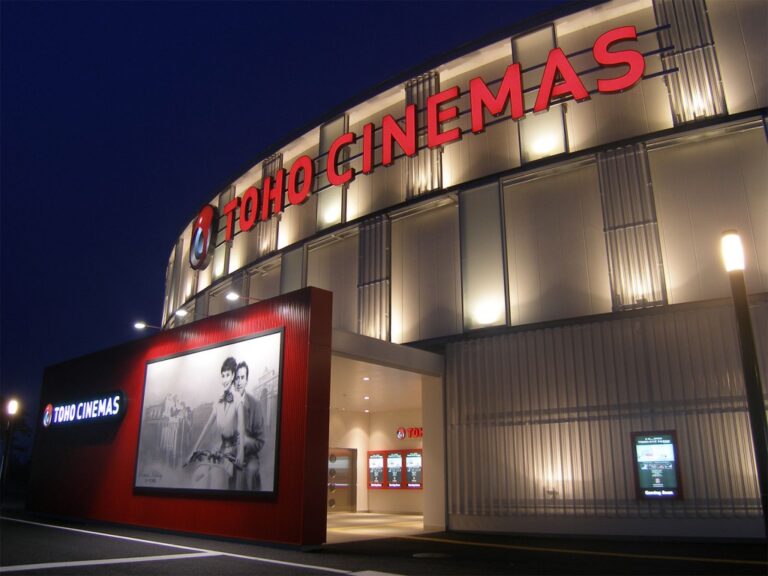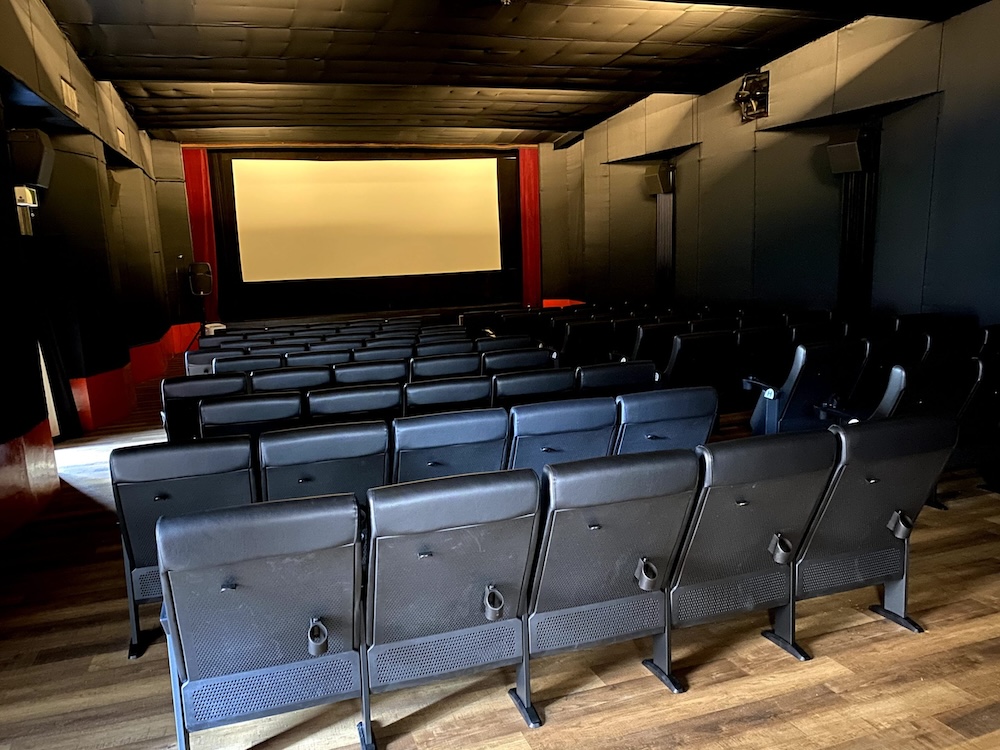
Heading out to watch a movie on the big screen is a much-loved experience around the world. Whilst streaming services have started to dominate TV and film, there’s never going to be a substitute for seeing a blockbuster hit in the cinema. The smell of popcorn, the rising excitement as the ads roll, the euphoria when the theme song takes over the room. You can’t get that in the same way at home.
Here in Japan, cinemas are thriving! With both domestic and international movies being played, you would be wrong to think that you’ll have to go without cinema if you move to Japan. On the contrary, you might grow to love it even more than at home.
Cinema Chains
A couple of the biggest cinema chains that you might encounter in Japan are Toho Cinemas and United Cinemas. I’d say on average a ticket to a showing at one of these big ones is normally around the 2000 yen mark ($13 at the time of writing). Depending on where you’re from, that might seem a bit steep but don’t worry, there are discount days. United Cinemas offer a scheme where members get a discount of 700 yen on Fridays. To become a member for the year, it only costs 600 yen, so you’d be winning on the day you bought it. Toho Cinemas discounts all their tickets on Wednesday, so you can go and see a movie for 1300 yen.
Japanese cinemas sell the standard array of expensive drinks and snacks to get before you go in. Of course, there’s always a no-outside-food policy, which you should of course ahere to… 😉
Independent Cinemas
There are also independent cinemas in almost every major city in Japan. Where I live, my local cinema shows foreign non-English movies and Hollywood classics. I went to see Dirty Dancing there once, which was a great laugh. Remember though, if you see a non-English foreign movie, the subtitles will be in Japanese, so your reading level had better be good or you’ll miss out.

Some independent cinemas in Tokyo include Shimo-Takaido Cinema (Setagaya), Waseda Shouchiku (Shinjuku), and Shin-Bungeiza (Toshima).
Differences to Home
Japan is the land of punctuality. I haven’t lived outside of Japan for quite some time now so you can correct me if I’m wrong, but the adverts don’t last anywhere near as long as abroad in Japan in my experience. In England, I used to rock up 20 minutes after start time to miss adverts. But the first couple of times I went to the cinema in Japan I ended up missing 10 minutes of the movie. So, get there on time.
Japanese movie theatres are unbelievably quiet. I’m not sure how Japanese people somehow get children to stay silent too, but I’ve never had a problem here with anyone being loud during a movie. It’s honestly lovely! After 5 years here I actively avoid taking crunchy food into the cinema now because I feel so loud when I do.
Another difference is that Japanese people will stay until the very end of the credits. When I ask Japanese people why, they tell me 2 reasons. First, they think that it’s respectful to wait until the end and see all the names. Second, there might be an extra scene after the credits that they want to see. Just be aware, that when the credits start to roll, no one will get up immediately in Japan.
The last thing that surprises me is just how much merch is sold in Japanese cinemas. Considering there’s a movie for every anime and TV show, you’d think people were sick of buying the same character stuff over and over again. But seemingly their thirst can never be satiated. I honestly love it though as it drums up the atmosphere so much. It’s a total vibe to be sitting next to someone with $100 of character merch when you watch an anime you’ve been dying to see.
Foreign Movies
Most foreign movies that get major attention at awards ceremonies will be shown, albeit after a slight time lag, in Japan. I’ve not felt like I’ve missed out much on cinema whilst living here. The only movie I haven’t seen yet is Oppenheimer due to its enormously delayed release here.
There are some caveats though. Sometimes, cinemas will only show dubbed versions of foreign movies, which in my experience make everything sound like an over-the-top anime. It’s mostly kids’ movies that are dubbed, but even if dubbed versions are more popular, there tend to be subbed versions of every movie. Unless you want to sit through a new Disney movie in Japanese, make sure you don’t see 吹替 (dubbing) next to the name. Look for 字幕 (subtitles) if you want the subbed version instead.
Challenge Yourself
I would never be so arrogant as to say you should just “go and learn Japanese” if you intend to live here. It’s hard and language learning isn’t for everyone. But I implore you to try and watch some domestic movies while you’re here in Japan.
There are some movies that you probably won’t get the chance to see in your own country. I’ve had this debate many times with people who tell me their town in America had an indie cinema that would play new anime movies, but I simply don’t think it’s the same as watching it in a packed cinema in Japan. The experience is incomparable in my opinion. In the time I’ve been here, I had the chance to watch Kimetsu No Yaiba – The Movie: Mugen Train on opening day. Let me tell you, it was probably one of the most memorable parts of my 5 years in Japan. The cinema I went to played it on 6 screens and every showing was nearly sold out. The whole nation was in full Kimetsu fever, and it all culminated in this movie. I truly feel like I was part of a cultural phenomenon that day. Of course, I didn’t understand all of the Japanese. But I didn’t need to. You’d be surprised how much you can catch without understanding 100% of the language and still have a great time.
So, I absolutely recommend trying to watch a Japanese movie that you can’t see in your home country while you’re here. Be it the newest anime, or another reboot of Godzilla, treat it as a cultural experience and get stuck in.
Don’t think that cinemas are out of reach in Japan. Whether you want to see foreign movies, or the latest Japanese flicks, everything is within your reach in some capacity in this country.















